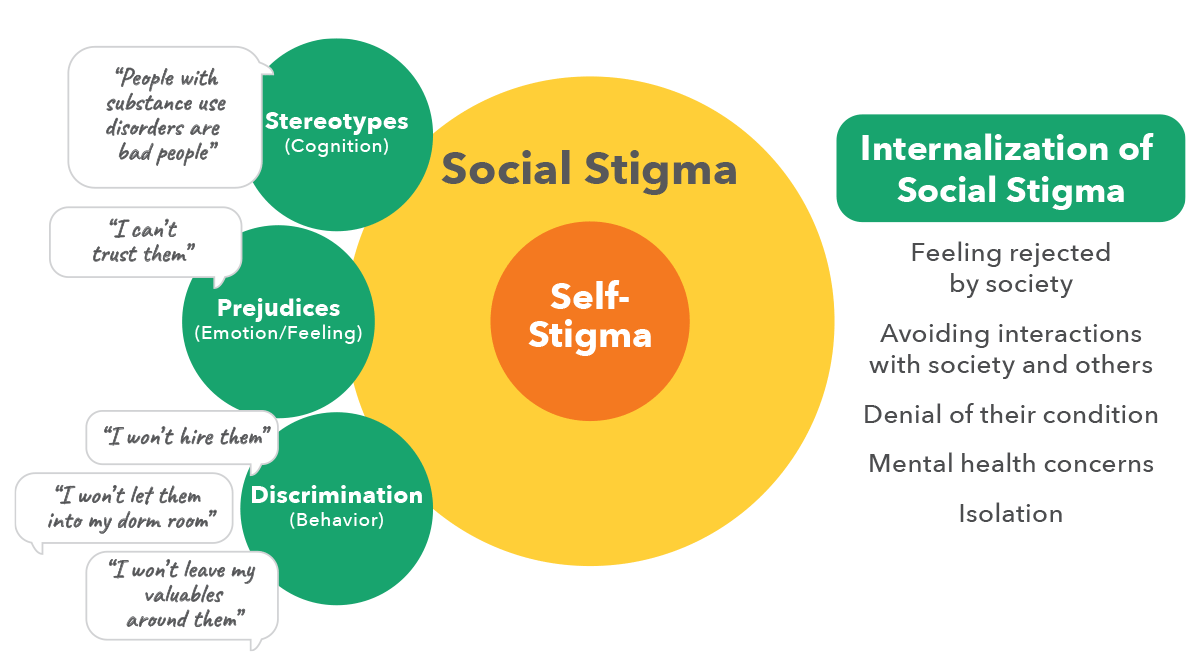- Table of Contents
Misperceptions
Click the play button below to hear this page read aloud.

MYTH: Addiction is a voluntary behavior and people just don’t feel like quitting.
✔ FACT: The initial decision to use a substance may be voluntary, but individuals do not choose to have a substance use disorder. Using substances changes brain chemistry and individuals develop tolerance (needing to use more of a substance to feel the same effects) and dependence (using a substance to feel ‘normal, regular, or stable’).
MYTH: Addiction is a character flaw.
✔ FACT: Substance use disorders are brain disorders. Substance use changes brain functioning, and this can impact all aspects of an individual’s behavior including prioritizing substance use over anything else.
MYTH: Addiction typically affects ‘certain types’ of people.
✔ FACT: Substance use disorders do not discriminate and can affect anyone regardless of age, socioeconomic status, gender, race/ethnicity, etc.
MYTH: People have to ‘hit rock bottom’ before they will seek treatment or get well.
✔ FACT: This is not true. Individuals can seek treatment at any time, whether their SUD is mild, moderate, or severe. The longer a person waits to get help, the sicker they will likely get, and the sooner someone gets help the better.
MYTH: If someone relapses, they are a lost cause.
✔ FACT: Returning to use is a recurrence of symptoms for substance use disorders. SUD’s require lifelong management and getting well is a process that involves changing deeply embedded behaviors. This takes time and effort, and there may be setbacks.
Stigma
Stigma is a set of negative, and often unfair, beliefs that people have about something. Many of the above misperceptions create stigma about people with substance use disorders.
 Image based on Penn State Collegiate Recovery Program, Recovery Ally Program
Image based on Penn State Collegiate Recovery Program, Recovery Ally Program
Stigma can lead to:
- Stereotypes - thoughts about a certain group of people
- Prejudices - feelings about a certain group of people
- Discrimination -behaviors towards a certain group of people
Stigma is complex, and external stigma may create self-stigma among individuals with substance use disorders.
✔ Reflection:
Are there any misperceptions that you had about substance use disorders or recovery? Write them below and consider how they have been challenged.
